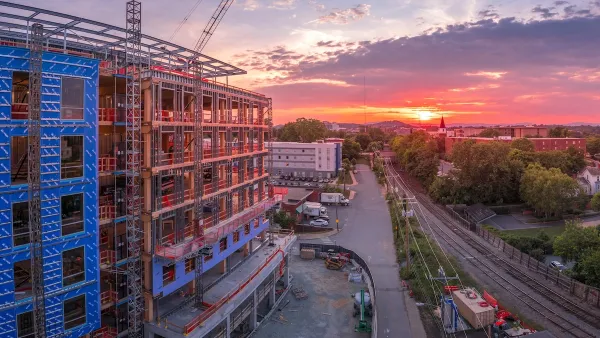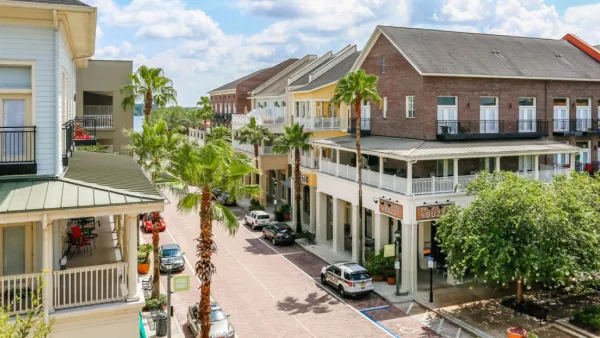The emergent urbanism of informal settlements has posed problems to governments in the Third World, and some are looking to address equality issues by issuing land titles. But one approach skips the titles and focuses on simple zoning.
This post from Old Urbanist explains.
"So far, although titling of properties has led to an average 25 percent increase in land values, the promised access to capital has largely failed to materialize. Further, the awarding of formal titles has often served as an invitation to outside real estate interests to enter the market, futher inflating prices and potentially driving out the very people whose tenure the titling program was purportedly designed to protect. In Mumbai, this process took the form of large apartment towers sprouting in the low-rise Dharavi slum, adding height without necessarily increasing density (in any event population density in these areas appears to be exceptionally high even in the absence of buildings over three stories).
An alternative approach, adopted mainly in the Brazilian city of Recife, has been to provide tenure security not with titles, but by recognition of the community's claim to the land, combined with the implementation of what is perhaps the simplest zoning code to be found anywhere in the world: 1) a two-story height limit; and 2) a maximum lot size of 150 square meters (1,615 square feet). Informal exchanges of property, without deed recording or title transfer, continue unhindered, reducing transaction costs and encouraging an extremely flexible urbanism where boundaries and structures rapidly adapt to changing needs."
FULL STORY: Slums, Titles and the World's Simplest Zoning Code

Planetizen Federal Action Tracker
A weekly monitor of how Trump’s orders and actions are impacting planners and planning in America.

Maui's Vacation Rental Debate Turns Ugly
Verbal attacks, misinformation campaigns and fistfights plague a high-stakes debate to convert thousands of vacation rentals into long-term housing.

San Francisco Suspends Traffic Calming Amidst Record Deaths
Citing “a challenging fiscal landscape,” the city will cease the program on the heels of 42 traffic deaths, including 24 pedestrians.

Defunct Pittsburgh Power Plant to Become Residential Tower
A decommissioned steam heat plant will be redeveloped into almost 100 affordable housing units.

Trump Prompts Restructuring of Transportation Research Board in “Unprecedented Overreach”
The TRB has eliminated more than half of its committees including those focused on climate, equity, and cities.

Amtrak Rolls Out New Orleans to Alabama “Mardi Gras” Train
The new service will operate morning and evening departures between Mobile and New Orleans.
Urban Design for Planners 1: Software Tools
This six-course series explores essential urban design concepts using open source software and equips planners with the tools they need to participate fully in the urban design process.
Planning for Universal Design
Learn the tools for implementing Universal Design in planning regulations.
Heyer Gruel & Associates PA
JM Goldson LLC
Custer County Colorado
City of Camden Redevelopment Agency
City of Astoria
Transportation Research & Education Center (TREC) at Portland State University
Jefferson Parish Government
Camden Redevelopment Agency
City of Claremont




























